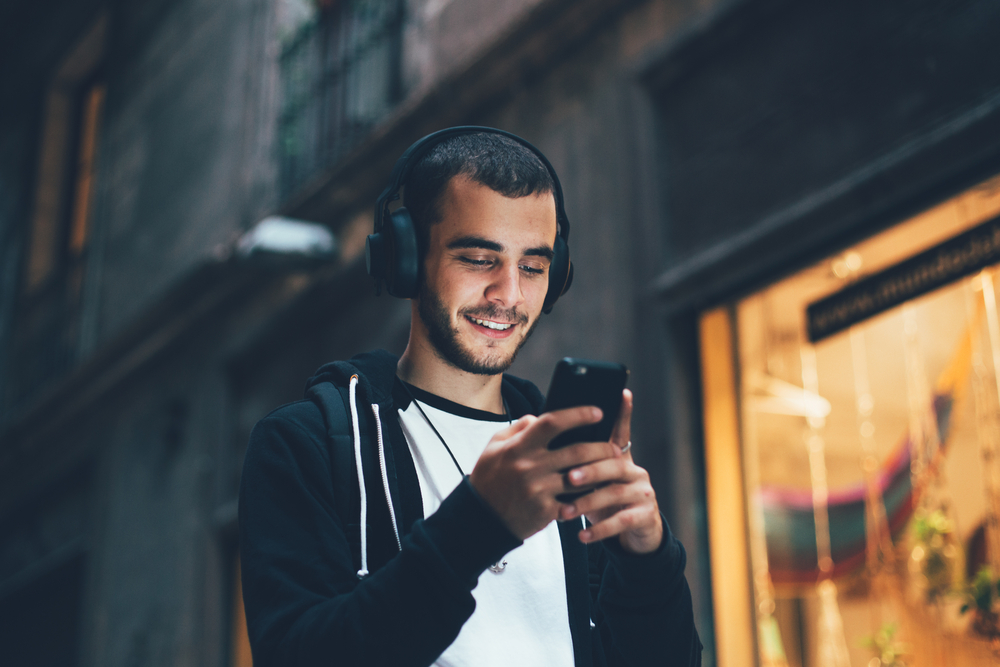
Meet James, a passionate music fan who perfectly integrates Spotify into his work regimen, switches to Pandora during his jogs, and curates playlists for every instance imaginable, from cardio sessions to cooking and even gaming. His headphones are his continual partners, converting his life into a completely soundtracked experience. James takes comfort and joy in the engaging realm of music, but the very source of his joy might be harming his cherished ability to hear without him realizing it.
There are safe ways to enjoy music and ways that are more hazardous to your hearing health. Sadly, many of us tend to gravitate towards the latter.
What is the relationship between extended exposure to music and hearing loss?
As time pass, loud noises can lead to degeneration of your hearing abilities. Hearing loss is commonly linked to growing older, but recent studies indicate that it is primarily caused by damage from exposure to loud sounds rather than being a normal part of aging.
It also appears that younger ears are particularly susceptible to noise-related damage (they’re still developing, after all). And yet, young adults are more likely to be dismissive of the long-term hazards of high volume. So there’s an epidemic of younger individuals with hearing loss, thanks, in part, to rampant high-volume headphone use.
Can one listen to music without any safety issues?
Unregulated full volume is obviously the” dangerous” way to listen to music. There is a way to enjoy to music more safely, which usually means lowering the volume. The recommended safe volume levels are usually as follows:
- Adults should limit their device listening time to 40 hours or less and ensure the volume stays below 80 dB.
- If you’re younger than 18, 40 hours is still acceptable, just be sure to keep the volume at a safe level, 75 decibels or lower.
Breaking it down, you’re looking at roughly 5 hours and 40 minutes of listening every day. That seems like a lot, but it can go by rather quickly. Even still, most people have a fairly solid concept of keeping track of time– it’s something we’re trained to do effectively from a really young age.
The more difficult aspect entails keeping track of your sound level. Devices like smartphones, computers, and TVs typically do not display volume in decibels. It’s assessed on some random scale. The range could be as broad as 1 to 100, or it could be as narrow as 1 to 16. You might not have any clue what the max volume on your device is, or how close to the max you are.
How to properly track your music volume
Numerous free noise monitoring apps can be downloaded for both iPhone and Android devices to tackle this problem. These apps supply instant feedback on surrounding noise levels, enabling users to fine-tune their listening volume to safe levels.
For this reason, many audiologists recommend utilizing one of the numerous noise level monitoring apps available at no cost. These extensively accessible apps, compatible with both iOS and Android platforms, provide instant sound-level feedback on the background noise around you. That way, you can keep track of the dB level of your music in real time and make adjustments.
Comparing relative volumes: from garbage disposals to dishwasher
By way of example, 80 dB is approximately comparable to the noise emitted by a common garbage disposal or dishwasher– audible, yet not excessively loud. Identifying this volume level is important because it denotes the point at which hearing loss becomes a real and substantial concern.
So, being extra vigilant when surpassing this decibel threshold is essential. Think about limiting exposure to overly loud music by enjoying certain tracks at maximum volume instead of indulging in complete albums.
Prolonged exposure to loud sounds can result in hearing issues, including ringing in the ears, or tinnitus, and potentially irreversible damage to one’s hearing. By being aware of when our ears are at risk, we enable ourselves to make informed choices in order to promote safer listening habits.
Make an appointment for a hearing assessment
For better prioritization of your hearing health, it is advisable to consult a hearing professional to book a comprehensive hearing exam. Taking practical actions like consistent assessments can pinpoint possible issues at an early stage, enabling prompt actions and customized advice to safeguard your valuable hearing.